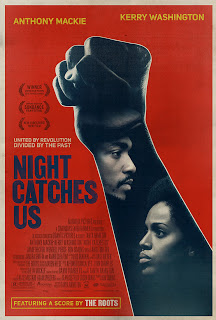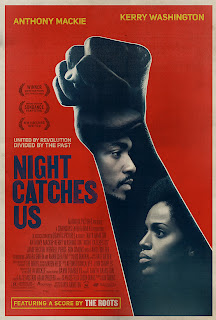It’s Time to Fucking Rally from Feministing:
Stand Up For Women’s Health!
“Now long-time screenwriter Tracy Jackson (The Guru and Confessions of a Shopaholic) has divulged a few dirty secrets about how hard it is for a woman of 50 to get a gig as a screenwriter in Hollywood in her memoir Between a Rock and a Hot Place – Why Fifty Is Not the New Thirty.”
“None of the women have professional ambitions or money of their own; their primary asset is ‘hotness.’ Ms. Aniston proudly shows herself off in a bikini–and looks great, it must be said–while Mr. Sandler keeps his shirt on, hanging loosely over his baggy pants. Yes, I know, the double standard is nothing new, but a wittier, less insecure movie might have at least had some fun with it.”
“And perhaps this would be a good time to define misogyny because there seems to be some confusion about the word in relation to Kanye’s video. First, when we talk about women, we mean full and complete human beings and all that that entails. Misogyny as defined by the Blackwell Dictionary of Sociology ‘is a cultural attitude of hatred for females simply because they are female. It is a central part of sexist prejudice and ideology and, as such, is an important basis for the oppression of females in male-dominated societies. Misogyny is manifested in many different ways from jokes to pornography to violence to the self-contempt women may be taught to feel toward their own bodies.'”
“As any parent who has raised both boys and girls knows, even the most strenuous efforts to keep academic, social and economic expectations equal are undermined by the outside world. Men have privileges: better pay, easier entree to every field except teaching and nursing. (And people with privileges–men and women–are as a rule loath to relinquish them.) Undergirding those privileges lies a set of gender expectations, a stereotype of femininity that can drive a fair-minded parent, like Peggy Orenstein, wild. As Orenstein recounts in her new book, Cinderella Ate My Daughter (January, HarperCollins), from the time they can walk young girls are in thrall to a consumer market intent on transforming them into sexualized princesses.”
“On one hand, this HuffPo item supports the anti-porn mores of Savage Death Island: Young Berger has died of extreme femininity. Her heart stopped during her 6th breast augmentation surgery and she never regained consciousness. The patriarchy blamer naturally recognizes a familiar narrative: desperate to appease the oppressor through rigorous adherence to deeply internalized pornographic beauty standards, Berger undertook multiple self-mutilations, and paid the ultimate price. Femininity kills.”
“I also think Coppola has something to say about growing up female. Yes, she’s addressing a particular kind of femininity. She is concerned with white, heterosexual women and girls gilded with privilege–except maybe the Lisbon girls, who are part of a single-income family supported by a school teacher’s salary. Sure, we have every reason to critique the construction of such limited representations. But I don’t necessarily have a problem with people writing and directing what they know.”
“When I saw the original version of ‘Blue Valentine’ at the Sundance Film Festival last year (the film was subsequently trimmed before it was rated), I wasn’t shocked by the sex–after all, it’s about two lovely young people who can’t keep their hands off each other–but I was startled. American characters–heterosexuals!–were having sex in a movie. Even at this pre-eminent independent festival, American filmmakers shy away from sex, especially the hot, sweaty kind. The old production code might have crumbled in the 1960s and couples can now share a bed, but the demure fade to black and the prudish pan–coitus interruptus via a crackling fire and underwear strewn across the floor–endures.”
“In contrast to the tall, muscular, brightly garbed, ray-of-sunshine vision of Wonder Woman, with her pretty American Pie expressions and sexually-objectified postures, Lisbeth Salander is a small, queerly androgynous weirdo–sullen, introverted, self-doubting, socially awkward, gloomily clad in black leather and body piercing. She is a Gothic punk outsider, a vigilante genius with a cold penetrating gaze, a mesmerizing pop culture fantasy figure acting out unspoken desires with life-affirming results.”
“We live in a society where misogyny is increasing to the point that the Republican Party is attempting to redefine rape, as we speak. The Super bowl is so highly touted and hyped as a grand celebration of the nation; it’s no wonder that the ugly United States culture is exposed during this athletic spectacle in which much of the world tunes in. We must reject the hatred of or aggression against women and girls in order to build a culture and society worth living in. Women hold up half the sky.”
“What happened? Is 2010 an exception to a general rule of growing diversity? Or has Hollywood, a supposed bastion of liberalism so eager in 2008 to help Mr. Obama make it to the White House, slid back into its old, timid ways? Can it be that the president’s status as the most visible and powerful African-American man in the world has inaugurated a new era of racial confusion–or perhaps a crisis of representation?”

